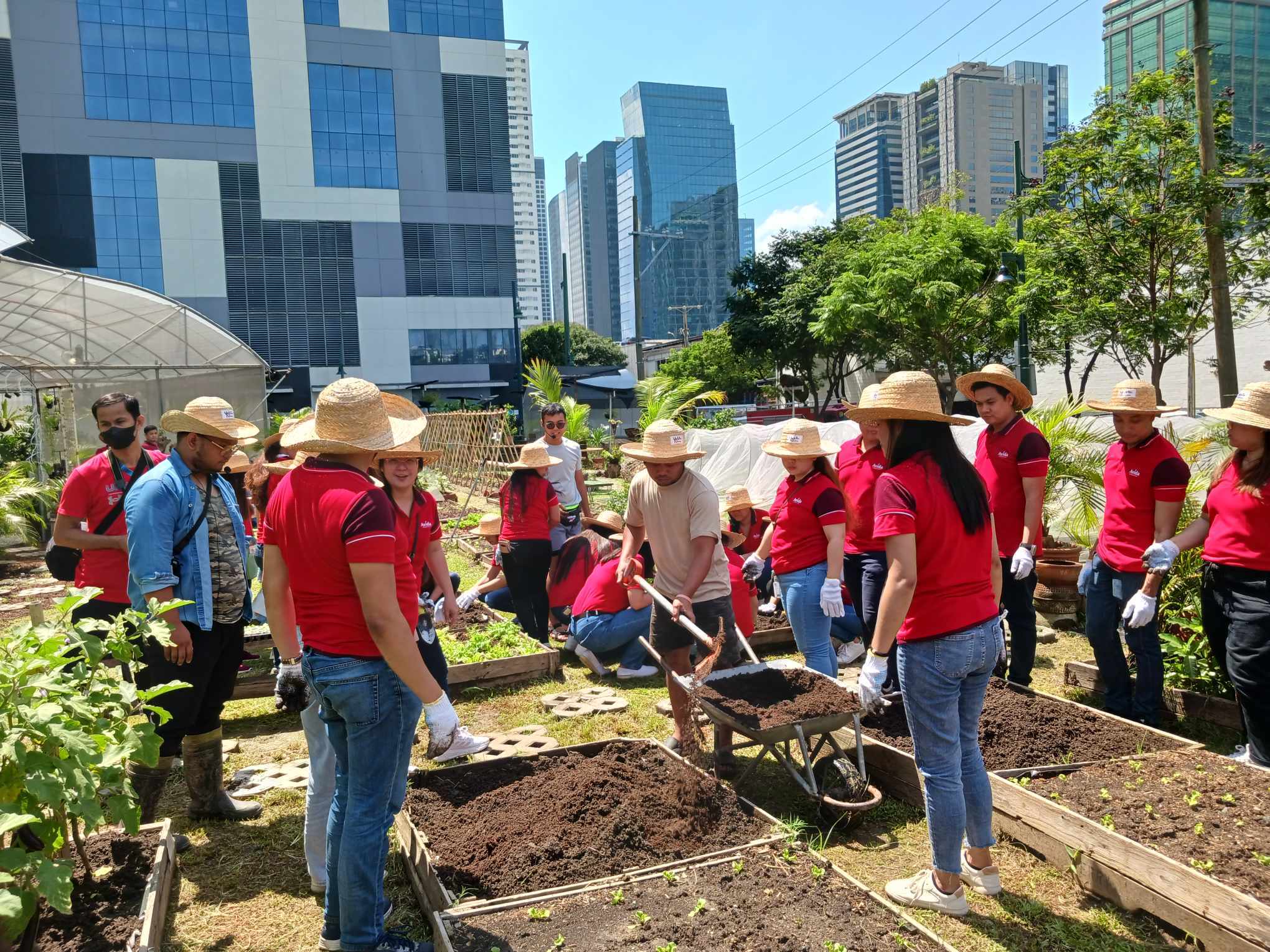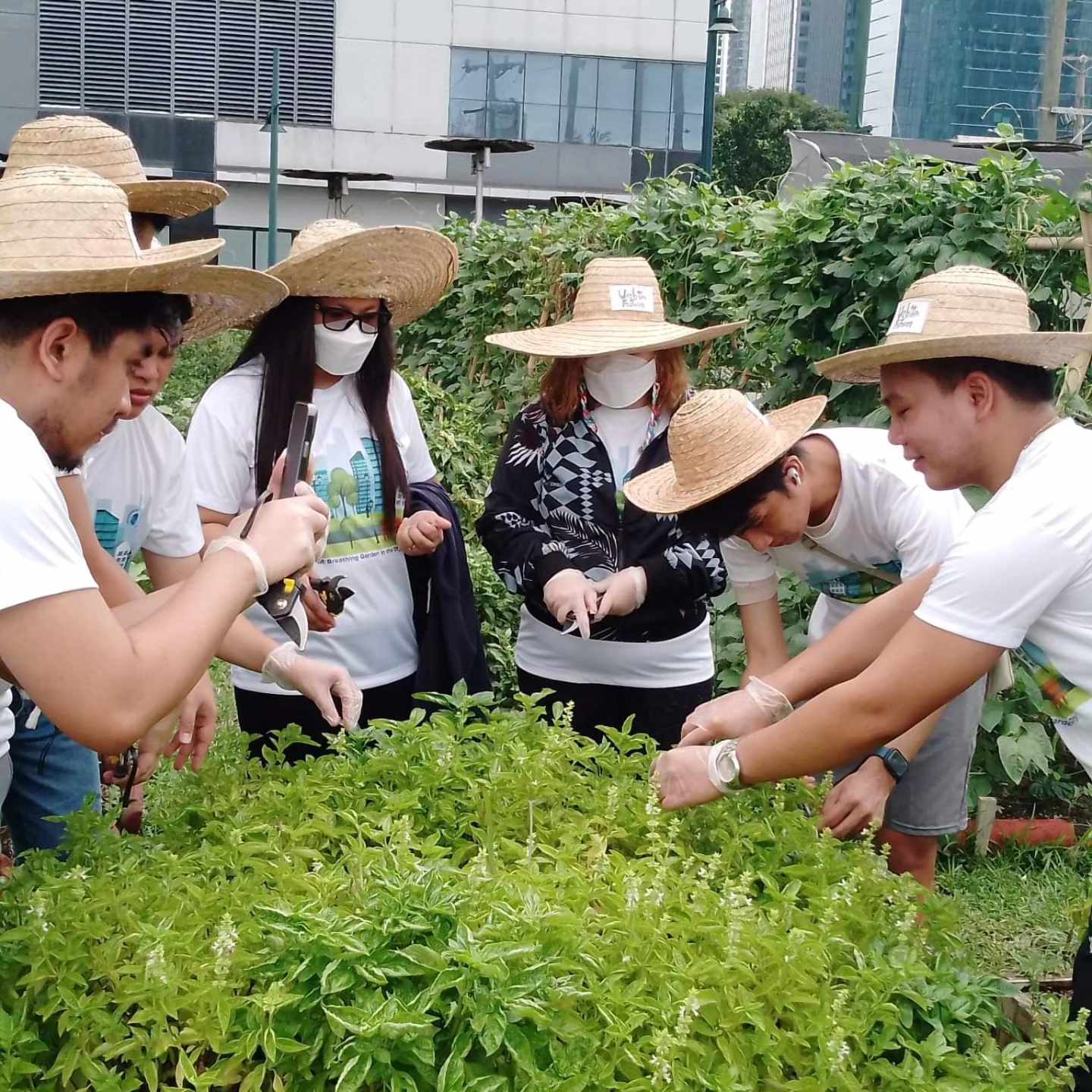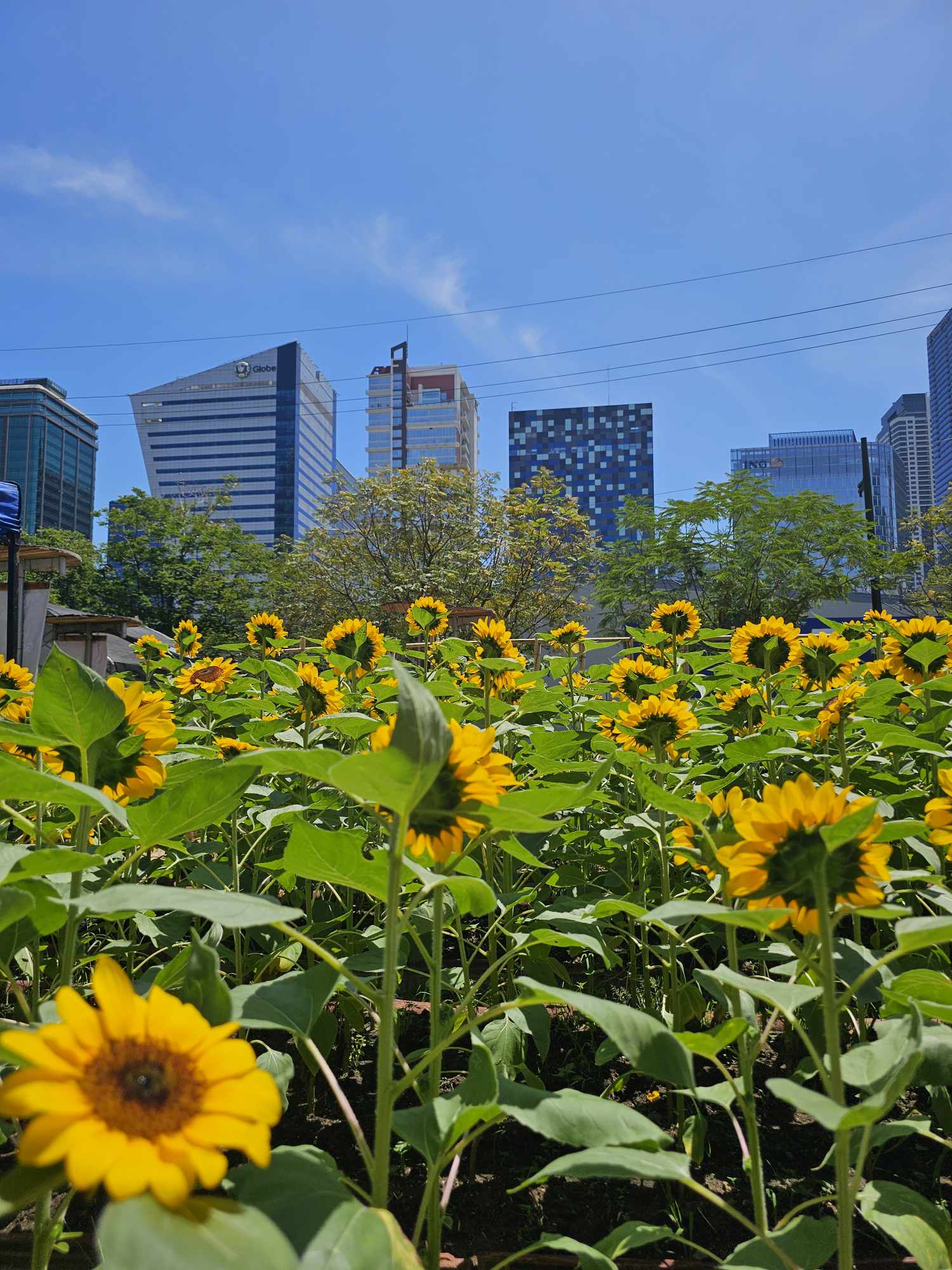By JUNEP OCAMPO

Valued at half a million pesos per square meter of raw land, the 1,500-square-meter community farm situated in the heart of Bonifacio Global City, Taguig, stands as arguably the most expensive farm in the country. However, far from being an enclave for the affluent, the farm serves as a testament to one man’s vision of promoting sustainability and the joy of farming for all.
That man is none other than Louie Ocampo Gutierrez, a third-generation jeweler from Pampanga and the CEO of Silverworks, a chain of stores retailing silver jewelry in malls. Louie serendipitously stumbled upon urban farming during the peak of the Covid-19 lockdowns. Three years after transforming his neighbor’s cogon-filled lot into a vegetable community farm, Louie now oversees the BGC farm alongside other vegetable gardens sponsored by corporate donors.

“The urban farming movement in the Philippines is burgeoning,” remarks Louie, whose updated business card now bears the title of chief farming officer. “Companies such as San Miguel Corporation have recognized that their gardens can be transformed into productive sources of fresh food.”
Louie’s life has undergone a profound transformation since delving into farming. He shares with the Manila Bulletin four pivotal lessons he has gleaned from urban farming.
Lesson 1: Farming is accessible to all
Approaching the age of 60, Louie confesses he had never cultivated anything prior to his involvement with Urban Farmers PH. “I always believed farming was reserved for those with a proverbial green thumb,” he reflects. Yet, his venture into urban agriculture revealed that with some basic training and countless hours of watching YouTube tutorials, he could start to cultivate vegetables like lettuce and tomatoes.

Lesson 2: Ask and you shall receive
When intentions are clear amazing things happen. Louie never imagined people would willingly offer their land and their skills for urban farming. “You simply have to ask. It's akin to the Biblical principle of asking and receiving. That's been our approach over these three years, and people have responded generously,” he explains.
Even the charming aesthetic of Urban Farmers PH’s branding stems from this lesson. Louie approached artist Robert Alejandro with his urban farming concept, and Robert graciously agreed to create artwork for the brand. “Everything unfolded organically, without much effort,” Louie recalls. “Robert was genuinely delighted to be part of the movement.

”Lesson 3: Creativity is crucial
Louie soon realized that farming entails substantial financial costs, which the produce alone cannot sustain. “Our yield isn’t sufficient to cover the farm’s operational expenses.
Consequently, we had to devise alternative revenue streams. We began offering workshops to schools and families eager to experience farming, enabling us to support our team of 10 farm workers,” he elaborates. They also engage in farm consultancy to help start home gardens for residences and bigger edible garden projects from companies, schools and communities.
They have also converted the big greenhouse which used to be a parking garage of EastWest Seed into a multipurpose activity area. This cozy area can be rented out for private functions.

Lesson 4: True happiness lies in impacting others
Louie recognizes that genuine happiness stems not from wealth, but from the positive impact one's life has on others. “The farm’s impact on people is immeasurable. We witness students who have never interacted with soil discover the joy of cultivating food.
Even my children, who once eschewed vegetables, now embrace them. I couldn't have persuaded them to eat their greens had I not embraced farming myself,” he muses.
Louie has transformed Urban Farmers PH into a social enterprise and NGO that empowers communities to farm in unused spaces. It runs without funding from government or other agencies but it is able to sustain itself by creatively producing different income streams. With the assistance of volunteers, Louie and his team establish urban edible gardens in public schools and corporate premises. These initiatives, Louie asserts, instill hope and inspiration in urbanites to engage in farming and adopt a sustainable lifestyle.

“We also emphasize upcycling and recycling, as 80 percent of materials used in our urban farms are repurposed,” he adds.
However, the most gratifying development occurring in Urban Farmers PH’s community farms is the revitalization of the natural environment in their vicinity. At the BGC Community Farm, for instance, indigenous pollinators such as birds and bees are gradually returning, restoring a sense of equilibrium and harmony absent in many urban areas.
“It’s high time we prioritized nature,” asserts Louie. “We owe it to ourselves and our children to nurture and safeguard our environment.”
The BGC Community Farm by Urban Famers PH is located at the corner of 5th and 34th Streets, BGC, Taguig. It is open from 6 a.m. to 6 p.m. daily. Entrance is free. Follow them on FB and IG: urbanfarmersph.